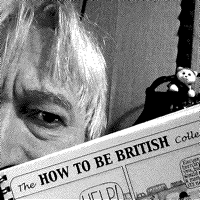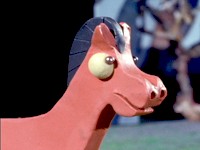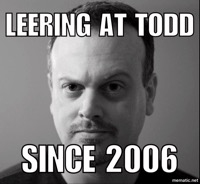 |
VO-BB - 20 YEARS OLD!
Established November 10, 2004
|
| View previous topic :: View next topic |
| Author |
Message |
Zach Meissner
Contributor IV

Joined: 01 Feb 2013
Posts: 132
|
 Posted: Wed Feb 20, 2013 3:24 pm Post subject: Recording sample/bit rate - what's the standard file specs? Posted: Wed Feb 20, 2013 3:24 pm Post subject: Recording sample/bit rate - what's the standard file specs? |
 |
|
I've been recording in Mono at 96khz/32 bit (float) in Audition, and have been wondering...
Is this the norm sample rate and bit depth for voice work?
What do you record at? |
|
| Back to top |
|
 |
Bish
3.5 kHz

Joined: 22 Nov 2009
Posts: 3738
Location: Lost in the cultural wasteland of Long Island
|
 Posted: Wed Feb 20, 2013 3:32 pm Post subject: Posted: Wed Feb 20, 2013 3:32 pm Post subject: |
 |
|
Some will say go for the highest you can to preserve the best quality audio as masters. There is no real down side as storage is cheap... however, it may stress your processing power and memory allocation during a longer session.
I use 44.1KHz, 16 or 24 bit depending on how I'm feeling. If it's a track that's going to end up in AV production, it's always worth checking if they want 48KHz, which is the norm for a lot of AV work... and you don't want to up-sample 44.1K to 48K and pretend 
For the most part, clients end up using an mp3 anyway... I'm not going to bother doing 96KHz, 32-bit for an audiobook or elearning 
_________________
Bish a.k.a. Bish
Smoke me a kipper... I'll be back for breakfast.
I will not feed the trolls... I will not feed the trolls... I will not feed the trolls... I will not feed the trolls. |
|
| Back to top |
|
 |
cyclometh
King's Row

Joined: 06 Aug 2010
Posts: 1051
Location: Olympia, WA
|
 Posted: Wed Feb 20, 2013 4:07 pm Post subject: Posted: Wed Feb 20, 2013 4:07 pm Post subject: |
 |
|
Bog-standard is 44.1 kHz, 24-bit. If you're working with MP3s and nothing but vocal, 128K kb/s is what I usually see, although up to 192 isn't uncommon.
I start with those settings and let the client tell me if they want something more or less than that. So far, no problems. 
_________________
Corey "Vox Man" Snow
http://voxman.net |
|
| Back to top |
|
 |
Bruce
Boardmeister

Joined: 06 Jun 2005
Posts: 7980
Location: Portland, OR
|
 Posted: Wed Feb 20, 2013 6:03 pm Post subject: Posted: Wed Feb 20, 2013 6:03 pm Post subject: |
 |
|
In my dozen plus years of producing my own audio I've recorded everything in 44.1 KHz and 16 bit wav, aif, or SD2 unless requested to do 48 KHz which is almost never these days. It's so easy to convert on their end nobody asks anymore.
I used convert a lot of my files to mp3 for clients, but now that it's so easy to send shorter files in wav/aif as email attachments and longer files by FTP (or FTP service or DropBox) just about the only mp3's I'm doing now are for auditions and demos.* Those are always 192Kbps (which is 96Kbps in mono).
I'm thinkin' 99% of us can't tell the difference between 16, 24, 32 or any of the higher bit rates they're promoting when it comes to voice. Maybe they're the same people who complained about how "thin sounding" digital recording was versus tape 20 years ago.
B
*Heck, 12 years ago I was still FedExing CDs to clients. Things change.
.
_________________
VO-BB Member #31 Enlisted June, 2005

I'm not a Zoo, but over the years I've played one on radio/TV. . |
|
| Back to top |
|
 |
Zach Meissner
Contributor IV

Joined: 01 Feb 2013
Posts: 132
|
 Posted: Wed Feb 20, 2013 8:42 pm Post subject: Posted: Wed Feb 20, 2013 8:42 pm Post subject: |
 |
|
| Looks like the necessity of 96khz is no more! Thanks! |
|
| Back to top |
|
 |
Dayo
Cinquecento

Joined: 10 Jan 2008
Posts: 544
Location: UK
|
 Posted: Thu Feb 21, 2013 2:15 am Post subject: Posted: Thu Feb 21, 2013 2:15 am Post subject: |
 |
|
Zach
Have you done any proper A/B comparisons between 96 and 44.1?
What do your ears tell you?
_________________
Colin Day - UK Voiceover
www.thurstonday.co.uk |
|
| Back to top |
|
 |
Zach Meissner
Contributor IV

Joined: 01 Feb 2013
Posts: 132
|
 Posted: Thu Feb 21, 2013 6:17 pm Post subject: Posted: Thu Feb 21, 2013 6:17 pm Post subject: |
 |
|
| Dayo wrote: | Zach
Have you done any proper A/B comparisons between 96 and 44.1?
What do your ears tell you? |
Well quite honestly, I just got proper studio monitors this week, M-Audio CX5's, so I have yet to do a good test. But yes, I will do such a test to see what the 'ol ears hear. |
|
| Back to top |
|
 |
Lance Blair
M&M

Joined: 03 Jun 2007
Posts: 2282
Location: Atlanta
|
 Posted: Tue Mar 19, 2013 7:24 pm Post subject: Posted: Tue Mar 19, 2013 7:24 pm Post subject: |
 |
|
I always do 48/32 in AA3 to capture, and then downconvert to standard .wavs and .mp3s if needed. I do think it sounds better than recording at 44/16 from the get-go.
Today I recorded 96/32 for the first time in perhaps like five years per the client's request and I was shocked at how much better it sounded. However, I have a better computer and OS than I did five years ago...maybe that's why the 96kHz works well now?
_________________
Skype: globalvoiceover
and now, http://lanceblairvo.com the blog is there now too! |
|
| Back to top |
|
 |
Mike Harrison
M&M

Joined: 03 Nov 2007
Posts: 2029
Location: Equidistant from New York City and Philadelphia, along the NJ Shore
|
 Posted: Tue Mar 19, 2013 7:35 pm Post subject: Posted: Tue Mar 19, 2013 7:35 pm Post subject: |
 |
|
16-bit 44.1khz is all that's required for voice work, unless it's for video, in which case the client may require 48kHz.
There's no need to record in 24-bit or higher; no one (no typical listener, at least) can hear the difference, and downsampling just removes samples like time compression does.
Wasted effort.
_________________
Mike
Male Voice Over Talent
I have taken leave of my sensors.
 |
|
| Back to top |
|
 |
Scott Pollak
The Gates of Troy

Joined: 01 Jun 2010
Posts: 1903
Location: Looking out at the San Juan mountains
|
 Posted: Tue Mar 19, 2013 8:44 pm Post subject: Posted: Tue Mar 19, 2013 8:44 pm Post subject: |
 |
|
| Bruce wrote: | Those are always 192Kbps (which is 96Kbps in mono).
|
Bruce, just curious, do you record dry v/o in stereo?
_________________
Scott R. Pollak
Clients include Pandora, NPR Atlanta, Wells Fargo, Cisco, Humana, Publix, UPS, AT&T, HP, Xerox and more.
www.voicebyscott.com |
|
| Back to top |
|
 |
heyguido
MMD

Joined: 31 Aug 2011
Posts: 2507
Location: RDU, the Geek Capitol of the South
|
 Posted: Tue Mar 19, 2013 9:27 pm Post subject: Posted: Tue Mar 19, 2013 9:27 pm Post subject: |
 |
|
Freakin' Noobz.... Really know how to stir up a sh!+ storm.... 
To put it simply, Zach, you're recording in overkill mode....
16bit/44.1khz is the standard for CD quality.... Which beats broadcast quality with a stick.... And most commercial work is created for broadcast..... So, CD quality is "good enuf" for most needs. (and, yes, for video, the standard is 48.... )
Beyond that, you enter flame war territory.... 
Some, like me, favor 24/96, for esoteric, technical reasons involving waveform artifacts, digital interpolation, blah, blah, blah.....  and a few, who have the newest gear, are playing around with 24/192.... and a few, who have the newest gear, are playing around with 24/192....
And those in the know  , sneer at 32bit float as snake oil bullsh!+.... Because it's not really 32bit. , sneer at 32bit float as snake oil bullsh!+.... Because it's not really 32bit.
Bottom line.... Most clients are happy with 16/44.1....And quite a few are naive enough to accept mp3 @ 96khz or 128khz 
But most of us.... We record according to the client's specs.
_________________
Don Brookshire
"Wait.... They wanna PAY me for this?"
Last edited by heyguido on Tue Mar 19, 2013 10:17 pm; edited 3 times in total |
|
| Back to top |
|
 |
Jeffrey Kafer
Assistant Zookeeper

Joined: 09 Dec 2006
Posts: 4931
Location: Location, Location!
|
 Posted: Tue Mar 19, 2013 10:08 pm Post subject: Posted: Tue Mar 19, 2013 10:08 pm Post subject: |
 |
|
The khz defines the end-to-end spectrum of frequencies captured. 44.1kHz equals about 20hz to 20khz frequency coverage. Extending that to 96 captures audio not able to be heard by human ears. Especially since your mic probably is only sensitive to the 20-20 range as well.
_________________
Jeff
http://JeffreyKafer.com
Voice-overload Web comic: http://voice-overload.com |
|
| Back to top |
|
 |
Lance Blair
M&M

Joined: 03 Jun 2007
Posts: 2282
Location: Atlanta
|
 Posted: Wed Mar 20, 2013 6:23 am Post subject: Posted: Wed Mar 20, 2013 6:23 am Post subject: |
 |
|
Agreed with all that Don (and Jeff)! 44/16 is all you need at the end of the day. People can't tell the difference otherwise.
It is nicer to start with a higher resolution recording for processing and then downconvert the final product, no? I mean, if you record at even 44/16 one wouldn't want to then take a mp3 and compress and EQ that.
_________________
Skype: globalvoiceover
and now, http://lanceblairvo.com the blog is there now too! |
|
| Back to top |
|
 |
Mike Harrison
M&M

Joined: 03 Nov 2007
Posts: 2029
Location: Equidistant from New York City and Philadelphia, along the NJ Shore
|
 Posted: Wed Mar 20, 2013 6:27 am Post subject: Posted: Wed Mar 20, 2013 6:27 am Post subject: |
 |
|
...and the audio spectrum is purposely limited in broadcasting: the audio frequency range for TV and FM radio is 50Hz - 15kHz, and AM radio goes only to 8kHz. However, I am not sure if the specs for digital TV and satellite radio are different.
If we have decent gear and don't have to do much filtering, we can truthfully say that the output of our studios isn't broadcast quality. It EXCEEDS broadcast quality. (Plus, many broadcasters purposely muck with their audio anyway.)
"A preponderance of bass, perhaps?"

_________________
Mike
Male Voice Over Talent
I have taken leave of my sensors.

Last edited by Mike Harrison on Thu Oct 15, 2015 5:18 pm; edited 1 time in total |
|
| Back to top |
|
 |
Bish
3.5 kHz

Joined: 22 Nov 2009
Posts: 3738
Location: Lost in the cultural wasteland of Long Island
|
 Posted: Wed Mar 20, 2013 7:59 am Post subject: Posted: Wed Mar 20, 2013 7:59 am Post subject: |
 |
|
Generally speaking there are three levels of "high" audio quality:
The theoretical
The audiophile
The real world
This almost gets into religious argument territory and can polarize people. There is no doubt that the ubiquitous 128k mp3 file was initially foisted on the public as good for music... and it is, in the same way that a car radio is good for listening to the 1812. The 128k is now seen for what it is, perfectly acceptable fidelity if you're not being picky, born out of a time when file size was a more important factor than it is now. I think it's fair to say that 256k is the new 128k. And remember, most people think of these files in their stereo application and (accepting that joint-stereo is not just two mono channels) broadly speaking, a mono 256k mp3 is giving us four times the "quality" of the old 128k stereo mp3. I think we're all happy with the concept of mp3 delivery being "customer's choice", and it probably isn't our job to fight the good fight and educate them... a 128k stereo soundtrack for a web video viewed on a computer is just fine.
Any compression algorithm that is not loss-less will introduce quality degradation and artifacts. It's the nature of the beast. When we're talking about the raw files (wav or aiff) that are (supposedly) verbatim records of the recorded data, certain rules apply.
Jeff nailed it with his previous post. The sampling rate should be (here's the technical bit) "twice the bandwidth plus a bit extra". If we accept that we are working with human ears and speakers designed for serving these human ears, 20kHz is what we need. The entire industry is built around this physical human limitation. Any audiophile who tells you that he needs his $500 per foot, gold speaker cables so he can here the "subtle overtones" at 25kHz should be considered a victim of a very savvy/cynical boutique audio manufacturing industry. Point out that the orchestra was recorded on microphones that had massive roll-off a little north of 20kHz and they don't want to know (whoops... slipped into rant mode... sorry).
So that's where we get the 44.1kHz standard from. Standards are great... that's why we have so many of them. The video industry was already using a 48kHz standard, so it makes perfect sense that the CD blue-book (red-book?) specs went to 44.1kHz. Engineers love round numbers, so looking for a suitable sampling rate to service 20kHz led to 48kHz... it can be halved, doubled, whatever, and give you a "nice" number. Start applying commercial pressure and the perceived need to fit an hour on a CD, and the industry dictated the slightly-shaved 44.1kHz (approximately 10% fewer bits needed, thereby increasing the audio capacity of the CD medium).
And therein lies the problem (well, one of them). If we are to supply raw audio to both the 44.1k and 48k markets, there is a solid argument for recording higher and downsampling. Flipping back and forth between 44.1 and 48 can induce small conversion errors and artifacts. Coming from 96 to 48 is clean and simple (thank you engineers, just omit every other sampling point). Coming from 48 to 44.1 isn't. Coming from 96 to 44.1 is better as you have more sampling points to use. Converting to and from 44.1 is inelegant ... but thankfully, it's almost ubiquitous, so just stick with it and you're fine... except when you know you're working with a client who wants 48k. Recording at 96k gives you more wiggle-room for supplying either, but seriously, how many times are you in a position where you don't know and have to accommodate a sampling rate change after you've recorded?
Bit rate. This is a little more subjective. For each of the sampling points (44,100 per second) the level is detected, and a digital value applied. A lot of high quality transmission systems (e.g. DV audio) use either 12 or 14 bits to encode this detected value. In simple terms, CD quality is 16 bits ... which gives us 64 thousand possible different levels for each sampling point. 24-bits give us something north of 16 million. There's a strong argument that 16 bit isn't "quite" good enough, leading to signal to noise ratio issues, quantizing errors and a slightly restricted dynamic range. This may well be getting into the realm of audiophile witchery, but at least these deficiencies can be quantified and observed. Anything beyond 24 bit is into "it goes to eleven" territory.
Bottom line... unless you know your client want 48k, stick with 44.1/16 bit CD quality for the human voice... unless you want to be bullet proof and use 24-bit (I flip-flop). Storage is cheap... so why not?
So, there you go... PB's quick guide for those who weren't quite with the technical conversation. If I've done what I intended, I've confused the issue even more 
_________________
Bish a.k.a. Bish
Smoke me a kipper... I'll be back for breakfast.
I will not feed the trolls... I will not feed the trolls... I will not feed the trolls... I will not feed the trolls. |
|
| Back to top |
|
 |
|
|
You cannot post new topics in this forum
You cannot reply to topics in this forum
You cannot edit your posts in this forum
You cannot delete your posts in this forum
You cannot vote in polls in this forum
|
Powered by phpBB © 2001, 2005 phpBB Group
|








